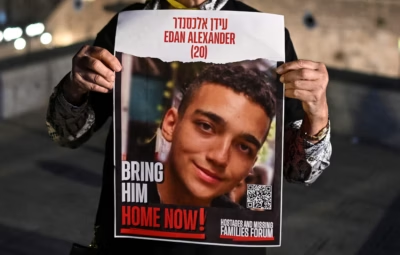
Hamas Rejects Israeli Hostage Deal Proposal
The Hamas terror organization has formally rejected Israel’s latest proposal, calling it a “partial deal” that fails to meet its core demands. According to Khalil al-Hayya, a senior figure in Hamas’s leadership, the offer did not include provisions for a permanent ceasefire or the withdrawal of Israeli forces from the Gaza Strip—conditions Hamas insists are non-negotiable.
The proposal, reportedly backed by international mediators Egypt and Qatar and presented through negotiation channels, outlined a 45-day interim truce during which several Israeli hostages would be released in exchange for a limited number of Palestinian security prisoners. However, Hamas swiftly dismissed the framework, labeling it “incomplete” and asserting that it does not provide the comprehensive solution they are seeking.
Instead, the terror group has reiterated its demand for a full and permanent cessation of military operations, a complete withdrawal of all IDF personnel from Gaza, and the lifting of the blockade to allow for what they term “reconstruction efforts.” These points, Hamas claims, must be agreed upon before any hostages are released.
Hamas’s insistence on these demands appears to be a continuation of its strategy to leverage humanitarian suffering and the fate of hostages to gain political ground, while Israel continues to prioritize the safe return of those held captive without capitulating to what Prime Minister Binyamin Netanyahu has termed “delusional” or “impossible” terms.
The Prime Minister, who recently visited IDF soldiers stationed in Gaza in a show of solidarity, remains under pressure from both international partners and families of hostages to reach a resolution. However, he has emphasized repeatedly that Israel will not agree to a full withdrawal from Gaza as long as Hamas remains in control or maintains military capabilities that pose a threat to Israeli citizens.
Netanyahu has expressed openness to phased releases and temporary humanitarian pauses but remains firm that the goal of dismantling Hamas’s military infrastructure must be achieved to ensure long-term security for residents of the south and throughout the country. His administration has been coordinating closely with the United States and Egypt, yet negotiations remain stalled as Hamas refuses to compromise on its maximalist demands.
The American administration has placed blame on Hamas for the impasse. U.S. officials have stated that the terror group has shown little interest in peace and appears to be prolonging the crisis for political reasons. The White House has reiterated its support for Israel’s right to self-defense and its responsibility to recover hostages, while also encouraging humanitarian measures where possible.
Families of hostages have continued to press for action, holding vigils and meetings with Israeli officials, as well as traveling abroad to plead their case to foreign diplomats. While some families advocate for broader concessions to secure their loved ones’ release, others have emphasized the importance of national security and the need to ensure that Hamas is not rewarded for its acts of terror.
In the midst of this complex situation, one reality remains clear: without Hamas agreeing to a change in its rigid positions, meaningful progress remains elusive. While Israel maintains its readiness to continue talks under the framework of phased exchanges and humanitarian relief, it has also signaled its commitment to pursuing military objectives in Gaza until Hamas’s ability to launch attacks is neutralized.